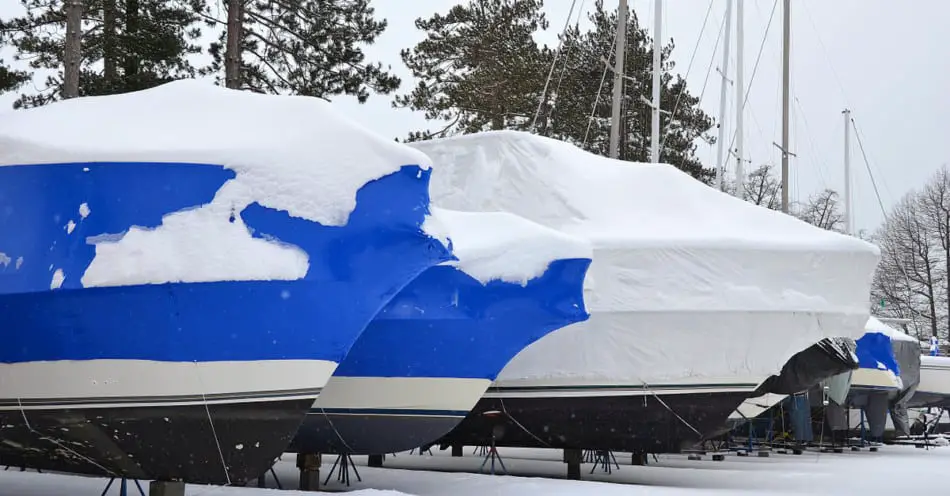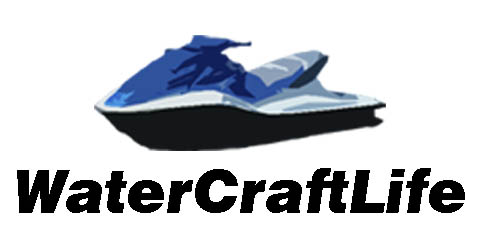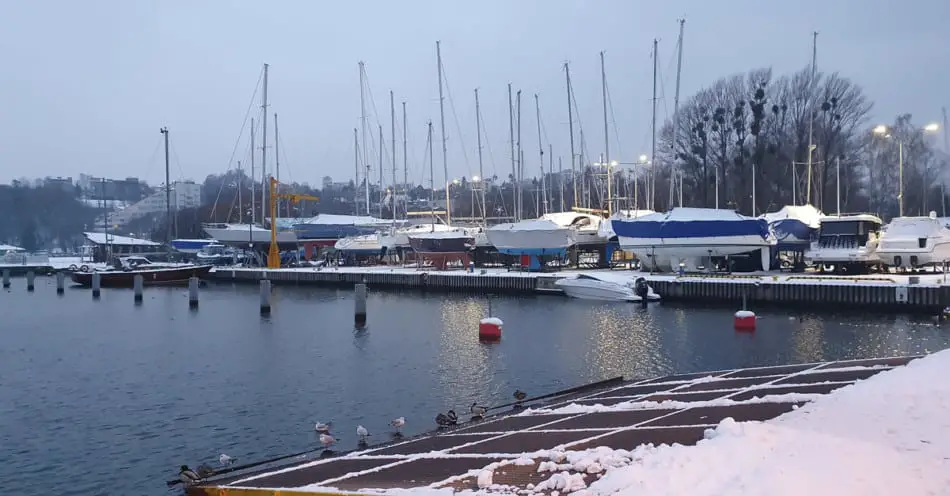Many boats are too large to remove from the water every winter and stored on the hard. Experienced boat owners boast that with the proper winterization procedures, they have never needed to haul out of the water for winter. It all comes down to knowing where to moor and how to prepare the boat for being in the water all year round.
Many boaters all over the world leave their boat in the water all winter. With proper winterization and in water storage techniques, your boat can be just as safe as in dry storage.
Many boaters trailer their boats to and from the lake, but some users have large boats that arent easily trailerable without permits or specialized hauling vehicles. In this case, these are typically stored on the water. Hauling out is required from time to time to clean the bottom or service the rudder, cutlass bearing, replace the anodes, and repaint the bottom, but the best time to do this is just before spring. Let’s look at the main issues to take care of when leaving your boat in the water all winter.
Even if you leave your boat in the water, you will still have to hire someone or perform a boat winterization process yourself to prolong your engine and other items on your boat.
What Are The Risks Of Leaving A Boat In The Water All Year?
Many seasoned boat owners leave their boats in the water all year long but they mitigate the risks of doing so by considering the following aspects:
1. Severe Winter Storms And Hurricanes

All boat owners have to contend with the extreme weather conditions that prevail during certain times of the year. Boat Insurers will limit you to keeping your boat in areas at lower risk of winter storms or hurricanes. Identifying a secure mooring field, marina, or harbor to store your boat during the high-risk months will be a mandatory requirement from your insurance company.
Severe storms can generate a surge of water that will significantly increase water levels when coupled with high tides. Coupled with high winds and wave heights, these conditions can break boats free from their moorings and even pull the marina docks off their mountings.
If you are in the northern hemisphere, you will have to deal with ice damage and freezing temperatures. Ice can be especially harmful as it will build up around your hull and cause lots of damage. If you leave your boat in a marina, consider a bubbler system to prevent ice from forming around your boat.
Should you decide to store your boat in the water during the winter consider shrink wrapping it to keep the outdoor elements out.
Even boats that are stored on the hard are not safe from storm surges and hurricane-force winds.
2. Anchor Dragging Or Lines Breaking Loose
Dragging while at anchor is a nightmare scenario for any boat owner, especially at night or during storms. A wind-sheltered mooring field may not be protected from all wind directions, and the failure of moorings is a regular occurrence. A mooring field on an inland lake or protected peninsula is possible but exposes the boat to other risks.
The best place to keep your boat in the water during winter is in a marina outside the hurricane risk areas. Marinas are designed to offer protection from the ocean swells, and the berths are designed to cope with the storm surges and provide a secure location to tie up.
Look for a marina that provides regular monitoring services for your boat. Leave a spare set of keys with the marina management so that they can perform checks and services on your boat as required.
Some boats are kept on anchor during the winter in protected coves, so make sure your lines are kept up so one doesn’t snap and leave your boat floating around.
3. Growth On The Hull
Leaving your boat in the water during winter will result in additional growth on the hull during this period of inactivity. You could arrange with the marina management to include regular hull cleaning as part of their service. You will most likely haul out your boat as spring approaches to conduct a pre-season inspection and service.
Hauling out is a reality for most boats during some stage every year. Insurance companies require inspections and servicing of key equipment that can only be done during a haul out. The first action, when hauled out, will be a high-pressure clean of the hull.
Checking the rudder, cutlass bearing, propeller, and anodes is essential to ensuring your boat is seaworthy. Inspecting the hull for signs of damage or leaks and determining whether the bottom paint is still in good condition is also done while hauled out.
4. Deterioration Of Rigging And Sails
Leaving the boat exposed to the elements will place additional strain on the drives, rigging, and sails. Seawater is very corrosive, and even the best quality stainless steel is not immune to it.
If you are not planning to use the boat at all during the storage period, it is recommended that you remove the sails and as many of the ropes, Biminis, or canvas coverings as possible from the above decks. The growth of algae on sails and ropes exposed during winter is inevitable.
5. Ultraviolet Sun Damage
The accelerated breakdown of gel coats and other protective coverings due to the sun’s UV radiation is unavoidable on a boat. The sails, ropes, and woodwork are also damaged by UV sunlight. It is possible to apply UV protective coatings or canvas covers for the upper deck.
When using canvas or plastic covers to protect against UV damage, care should be taken not to introduce a source of chafing. The windows could be covered from the inside or outside to the UV light from causing damage to the cabin’s interior.
To protect from UV sun damage while in outdoor storage, consider shrink wrapping your boat.
6. Lightning Strikes
There is nowhere to hide a boat during a lightning storm. The tall mast is an ideal target for a lightning strike, and this happens quite frequently. The disconnection and removal of the key electrical and navigation equipment during winter is recommended.
The wind speed meter, antennae, radar, solar panels, and wind generators should be taken down and stored during winter to prevent damage and theft.
7. Electrical Fire – High Risk
Lightning strikes or a short in the electrical wiring is a high risk on boats. Electrical failures most often cause fires on boats. Leaving the boat in the water during winter further exposes the electrical system to harsh marine elements.
The best practice is to disconnect all the batteries completely and remove as many electrical devices and navigation systems as possible for storage in a safe and dry environment.
8. Theft
A boat left in a remote mooring field or marina is a prime target for thieves to raid and strip of all valuables. The security at a marina needs to be good and not allow unauthorized access. An onboard security system or camera system linked to shore power and an alert to yourself and the marina management is a good idea.
9. Mold Growth Inside The Cabin
If you have shielded the windows from UV intrusion, the dark and damp interior will be the ideal place for black mold and other bacterial growths to flourish. You will require shore power to power a dehumidifier and heater inside the cabin. Keeping the air clean and dry will prevent the growth of mold.
10. Water Leaks On A Boat
There are many potential sources of water leaks from above and below the boat. Leaking windows, hatches, and vents can cause significant damage during three-month storage. The sea-cocks should all be closed and monitored that they are not leaking.
A bilge level alarm and a humidity alarm should be set up to monitor the conditions in the boat during storage. Alarms must be reported to the marina management for inspection and to correct any failure or leaks.
11. Freezing Items
The cold weather will freeze your water and sewer lines. Make sure you use antifreeze in your pipes when you winterize your boat to prevent anything from freezing. Also, add some to your holding tanks to prevent damage.
Conclusion
Boats can be left in the water all winter, but they have to be securely tied up in a safe location outside the high-risk hurricane zone. The proper winterization and monitoring of the boat are essential to ensure that it remains in good condition and will require minimal preparation before the start of the next season.
If you have a boat small enough to tow out of the water, it is strongly considered to winterize your boat and keep it stored out of water for your winter boat storage period.
Owning a boat is synonymous with the constant vigil against the effects of the marine elements. Cruisers often say that cruising means doing boat repairs in exotic places or that BOAT is an acronym for Bring Out Another Thousand.
The better you care for your boat, the safer you will be when using the boat. Leaving your well-winterized boat securely docked and monitored is quite possible and normal for seasoned boat owners.


